Skill Improve

How can I improve my speed reading skills ?
Speed reading is a valuable skill that can help you save time and increase your productivity. Here are some tips on how to improve your speed reading skills: 1. Set a goal for yourself, such as the number of words per minute you want to read or the number of books you want to finish in a month. This will help you stay motivated and focused on improving your speed reading skills. 2. Eliminate distractions by finding a quiet place to read and turning off your phone and any unnecessary tabs on your computer. 3. Use a pointer, such as a pen or your finger, to keep track of where you are in the text and prevent your eyes from wandering back over the words. 4. Practice skimming by quickly scanning through the text to get an overall idea of what it's about. Look for keywords, headings, subheadings, and other important information that can give you an overview of the content. 5. Improve your vocabulary by learning new words regularly, either by reading challenging materials or using vocabulary-building apps and websites. 6. Read regularly, even if it's just for a few minutes each day. The more you read, the faster you'll become at recognizing words and comprehending the material. 7. Take breaks while reading to avoid eye strain and fatigue. Every 20-30 minutes, look away from the screen or book and focus on something else for a few minutes before returning to your reading. 8. Use technology, such as apps and software, to help you improve your speed reading skills. These tools often include features like word highlighting, pacing controls, and comprehension tests. By following these tips and practicing regularly, you should see a significant improvement in your speed reading skills over time. Remember to be patient with yourself and enjoy the process of learning!

Can nutrition affect an athlete's skill level ?
Nutrition is vital for athletes' overall well-being and performance, including skill enhancement, recovery, and injury prevention. It affects cognitive function, physical performance, and recovery, ultimately influencing an athlete's skill level. A balanced diet with proper nutrients can help athletes reach their full potential and succeed in their sports.

Can playing multiple sports help in skill development ?
Participation in multiple sports can enhance overall athleticism and skill development by improving physical attributes, reducing injury risk, developing transferable skills, and promoting mental toughness. It also offers social benefits such as expanded networks and increased opportunities for exposure. While specialization has its advantages, playing multiple sports can help athletes become well-rounded competitors.

Is speed reading a natural ability or a skill that can be learned ?
Speed reading is a topic of interest for many individuals who wish to improve their reading efficiency and comprehension. The question arises whether speed reading is a natural ability that some people possess, or if it is a skill that can be learned and developed through practice and training. While there may be some individuals who possess a natural ability for speed reading, it is generally accepted that speed reading is a skill that can be learned and improved upon through practice and training. By employing specific techniques and strategies, anyone can enhance their reading speed and comprehension, ultimately increasing their productivity and knowledge acquisition.

How do I choose a tennis training camp that fits my skill level ?
Choosing a tennis training camp that fits your skill level can significantly improve your game. Here are some tips on how to select the right camp: 1. Assess your current skill level by considering your experience, strengths and weaknesses, and fitness level. 2. Research different camps that offer programs specifically designed for your skill level using online directories, social media groups, and reviews from previous attendees. 3. Check the coaches' qualifications and experience, including their credentials, coaching philosophy, and track record of working with players at your skill level. 4. Consider the quality of the camp's facilities and amenities, such as well-maintained courts, access to equipment, and onsite amenities like locker rooms and dining areas. 5. Evaluate the camp's reputation and success rate by reading reviews, asking for referrals, and contacting the camp directly to learn more about their success stories.

How can team sports help in individual skill development ?
Team sports contribute significantly to individual skill development by improving communication skills, enhancing leadership abilities, increasing self-confidence, bettering time management, improving social skills, promoting physical fitness and coordination, providing opportunities to learn from mistakes, and fostering adaptability.

How important is rest and recovery in skill enhancement ?
The text discusses the importance of rest and recovery in the process of skill enhancement. It highlights the cognitive and physical benefits of taking breaks, such as improved mental clarity, memory consolidation, muscle recovery, and injury prevention. The practical implications include avoiding burnout, enhancing performance, and strategies for incorporating rest into practice schedules. Overall, the text emphasizes that rest is a crucial component of long-term skill development and should be given equal consideration alongside deliberate practice and training regimens.

Are there any specific exercises or drills for skill improvement in basketball/football/tennis, etc. ?
Topic: Skill Improvement Exercises and Drills in Basketball, Football, and Tennis Basketball: - Dribble the ball with alternating hands and in a figure 8 motion to improve ball handling skills. - Practice shooting free throws and spot shooting to enhance accuracy and consistency. - Work on lateral movement and closeout drills to improve defensive positioning and quickness. Football (Soccer): - Pass the ball against a wall and in a triangle formation to improve passing accuracy and touch. - Practice shooting at targets and receiving passes before shooting to enhance shooting accuracy and speed. - Work on marking and tackling drills to improve defensive skills and technique. Tennis: - Hit crosscourt groundstrokes and alternate forehand and backhand shots to improve accuracy and consistency. - Practice serving to targets and focusing on second serves to enhance serving reliability and placement. - Work on lateral movement and net approach drills to improve court coverage and net play.
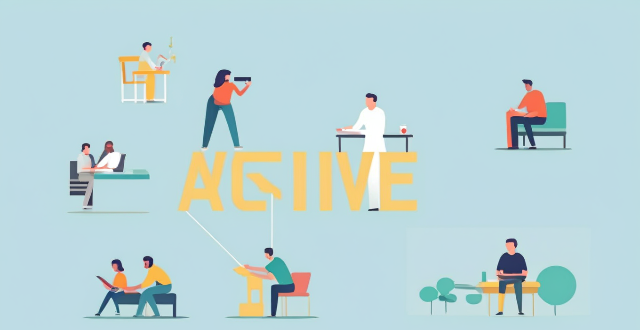
Can extracurricular activities improve academic performance ?
Extracurricular activities can improve academic performance by developing time management skills, increasing motivation and engagement, enhancing social skills and networking, and providing stress relief and mental health benefits.

How can I improve my self-evaluation skills in the workplace ?
Self-evaluation is a crucial skill in the workplace, allowing you to reflect on performance and set goals for improvement. To enhance this skill, set clear SMART goals, track progress, seek feedback, remain objective, reflect on experiences, celebrate successes, identify areas for improvement, and stay open to change. This process should be ongoing, with regular practice leading to greater success over time.

Can playing sports improve one's writing skills ?
Playing sports can indirectly improve writing skills by enhancing focus, creativity, and reducing stress. It also promotes discipline, teamwork, and resilience, qualities beneficial for writing. Incorporating sports into a routine can inspire more engaged and authentic writing.

How can I improve my sports skills quickly ?
Improving sports skills quickly involves setting clear goals, consistent practice, professional coaching, performance analysis, cross-training, technique focus, visualization, rest, learning from professionals, and staying motivated.

How does sports improve social skills ?
Sports significantly enhance social skills through teamwork, confidence-building, dealing with diversity, interpersonal development, and leadership. Participation fosters cooperation, communication, shared responsibility, achievement, resilience, public performance, acceptance, adaptability, respect, networking, empathy, conflict resolution, role assumption, motivation, and decision-making. These skills are transferable to various aspects of life, making sports a valuable platform for personal growth and social interaction.

How can women improve their relationship management skills ?
Managing relationships is a crucial life skill that helps individuals navigate personal and professional connections effectively. For women, enhancing relationship management skills can lead to improved communication, deeper connections, and increased satisfaction in various aspects of life. The key areas to focus on include empathy and active listening, clear and honest communication, conflict resolution, boundary setting, self-awareness and personal growth, and building trust and loyalty. By practicing these skills, women can enhance their relationship management abilities and lead more fulfilling and harmonious lives.

Can virtual reality training improve athlete skills ?
Virtual reality (VR) technology has been increasingly utilized in sports training, raising the question of whether it can improve athlete skills. The answer depends on several factors, including the type of sport and specific skills required. VR platforms offer a novel medium to develop cognitive skills such as concentration and alternating attention. They can be highly beneficial for sports requiring precision and accuracy, providing a controlled environment for repeated practice and immediate feedback. However, VR should not replace traditional physical training entirely but be used as a supplementary tool. Additionally, VR can help athletes mentally prepare for competition by simulating game scenarios and practicing decision-making skills under pressure. The effectiveness of VR training depends on various factors, and its evolution in sports training programs will be interesting to observe as technology advances.

Are tennis training camps effective for children and teenagers ?
Tennis training camps can be an effective way for children and teenagers to improve their skills and develop a love for the sport, depending on factors such as quality of instruction, level of commitment, and overall environment. Benefits include skill development, learning new techniques, building confidence, and socializing with other young players.
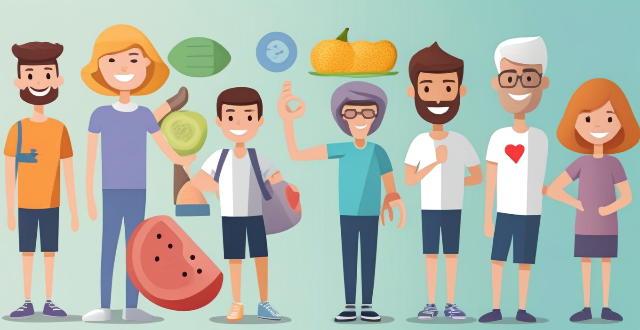
In what ways can sports education improve mental health and well-being ?
Sports education plays a crucial role in enhancing mental health and overall well-being by offering numerous benefits that contribute to the development of a healthy mind and body. It helps reduce stress, improve self-esteem, promote better sleep, provide opportunities for social interaction, teach goal setting, time management, resilience and perseverance, and develop mindfulness and focus. By promoting physical activity, social interaction, goal setting, time management, resilience, and mindfulness, sports education can help individuals develop the skills they need to lead healthy, fulfilling lives.
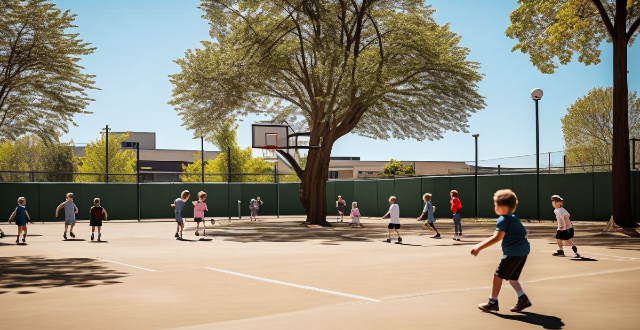
Are there specific sports that improve academic performance in children ?
The article discusses the potential benefits of different types of sports on academic performance in children. It highlights team sports like basketball, soccer, and volleyball for their ability to teach social skills, time management, and discipline. Individual sports such as swimming, tennis, and gymnastics are noted for promoting self-discipline, goal setting, and mental toughness. Outdoor sports like hiking, cycling, and rock climbing are mentioned for providing physical activity, stress relief, and exploration opportunities. The conclusion emphasizes the importance of considering individual differences among children when encouraging sports participation for academic improvement.

Can napping improve athletic performance ?
**Can Napping Improve Athletic Performance?** Napping is a common practice among athletes and non-athletes alike, but can it really improve athletic performance? Research suggests that napping can aid in physical recovery and enhance cognitive function. Physical Recovery: - **Muscle Repair**: Sleep produces growth hormone, aiding in muscle repair and growth. - **Reduced Inflammation**: Sleep reduces inflammation, leading to better recovery after exercise. Cognitive Function: - **Improved Focus**: A quick nap can improve focus and concentration for peak performance. - **Enhanced Learning**: Sleep consolidates memories, allowing athletes to learn from mistakes and improve skills faster. Effective Napping Tips: Timing: - **Power Naps**: Limit naps to 20-30 minutes to avoid deep sleep and feeling groggy upon waking. - **Timing Before Bedtime**: Avoid napping too close to bedtime to prevent disrupting the nighttime sleep cycle. Environment: - **Quiet and Dark**: Find a quiet, dark place to nap for better sleep quality. - **Comfortable Surface**: Choose a comfortable surface to prevent waking up with aches and pains. In conclusion, napping can improve athletic performance by aiding physical recovery and enhancing cognitive function. It's important to nap effectively by timing your naps appropriately and creating a comfortable environment.

Are there any natural remedies to improve sleep ?
This article discusses natural remedies that can help improve sleep, such as chamomile tea, lavender oil, valerian root, magnesium, exercise, meditation and yoga, and maintaining a consistent sleep schedule. These remedies can promote relaxation, reduce anxiety, regulate the body's internal clock, and improve the quality of sleep. Incorporating these remedies into your daily routine can help you enjoy the benefits of feeling well-rested.

Are there any age restrictions for attending a tennis training camp ?
Attending a tennis training camp can have age restrictions based on physical maturity, safety concerns, and skill level. Typically, the minimum age requirement is between 8-10 years old, but some camps may accept younger children with parental supervision or permission. There are usually no maximum age limits, as adult players often attend training camps to improve their skills or prepare for competitions. Attending a tennis training camp can provide numerous benefits, including improved skill level, increased fitness, and networking opportunities.

Can stretching after a workout improve flexibility ?
Stretching after a workout can improve flexibility, reduce muscle soreness, and aid in recovery. To stretch properly, hold each stretch for at least 30 seconds, avoid bouncing, and focus on major muscle groups.
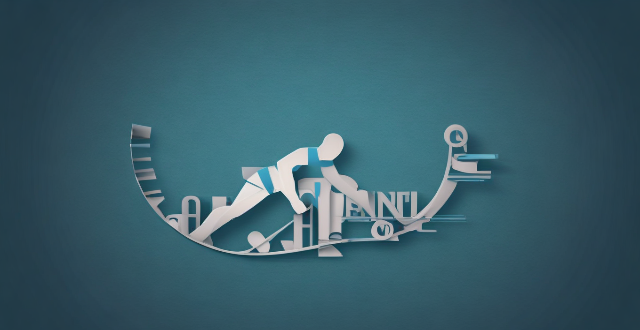
Can strength training help improve my running performance ?
Strength training is an essential component of any fitness program, including running. It helps to build muscle strength and endurance, which can significantly improve your running performance. Strength training can help increase muscle strength and endurance, improve running economy, reduce the risk of injury, and enhance posture and body alignment. To incorporate strength training into your running routine, start slowly with light weights and gradually increase intensity over time. Choose exercises that target major muscle groups used during running, such as glutes, hamstrings, quadriceps, calves, and core muscles. Incorporate plyometric exercises to improve explosive power and acceleration. Allow sufficient recovery time between sessions to avoid overtraining and potential injuries.

Can exercising during lunch breaks improve work performance ?
Exercising during lunch breaks can improve work performance by boosting energy levels, reducing stress and anxiety, improving mood, enhancing cognitive function, and promoting better sleep quality. To incorporate exercise into your routine, plan ahead, set realistic goals, find a workout buddy, be mindful of time, and make it fun!

How do I improve my pronunciation in a foreign language ?
Improving your pronunciation in a foreign language is essential for effective communication and can greatly enhance your overall language skills. Here are some tips on how to improve your pronunciation: listen carefully, practice with a native speaker, use pronunciation guides and apps, record yourself and analyze your mistakes, and be consistent and persistent. By following these tips, you can greatly improve your pronunciation in a foreign language.

Is it true that working out can improve your mood ?
Working out can improve your mood by releasing endorphins, boosting self-esteem, improving sleep quality, providing social interaction, and reducing symptoms of depression.
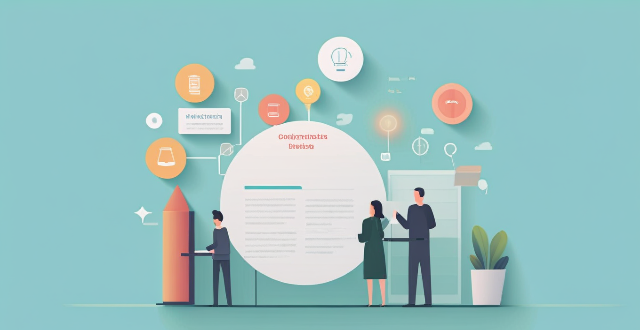
How often should I practice to see improvement in my golf skills ?
Golf improvement requires consistent practice, and the frequencyGolf improvement requires consistent practice, and the frequency your skill level, goals, and the frequency of your sessions depends on your skill level, goals, and availability. Assess your current skill level and set realistic goals to create a practice plan that includes both on-course and off-course activities. Beginners should aim for at least three practice sessions per week, while intermediates can do two to three and advanced players one or two. Make each session count by focusing on specific goals and tracking progress. Consistency is key, so stick to your practice plan and adjust it as needed based on your progress.
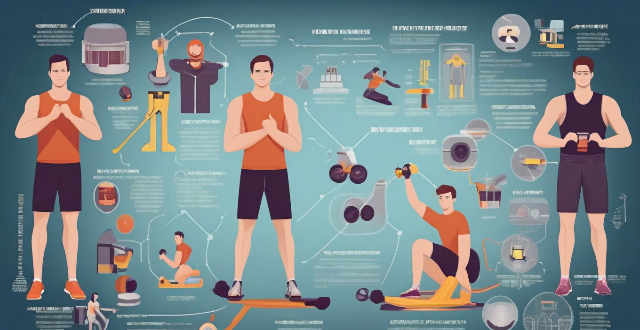
How important is visualization in building a strong sports mentality ?
Visualization, or mental imagery, is a powerful tool for athletes to enhance performance and build a strong sports mentality. It involves using imagination to simulate experiences and practice skills mentally. The science behind visualization shows that it activates similar neural networks as physical performance, aiding in motor learning and refining movement patterns. Psychologically, it boosts confidence and reduces stress. Benefits include skill refinement, strategy planning, resilience building, focus sharpening, clear goal setting, and increased motivation. To implement visualization effectively, find a quiet space, set clear intentions, use all senses, and ensure positive outcomes. Incorporating visualization into training can significantly improve an athlete's readiness for competition and overall sports psychology.
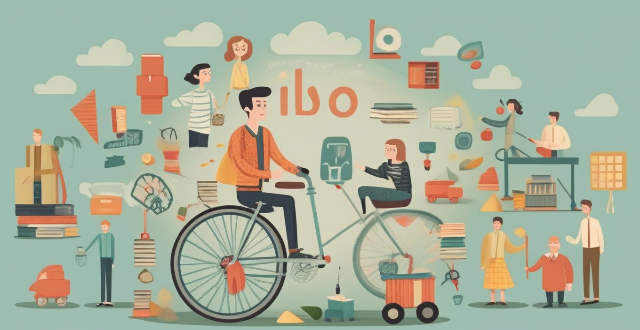
Is there a link between improved comprehension and critical thinking abilities ?
The link between improved comprehension and critical thinking abilities is explored, with a focus on how these skills are interconnected and work together to enhance cognitive abilities. The article suggests that improving one skill can lead to improvements in the other, creating a virtuous cycle of cognitive development. Techniques for improving both skills are also discussed, including reading widely, engaging in debates, and practicing active listening.